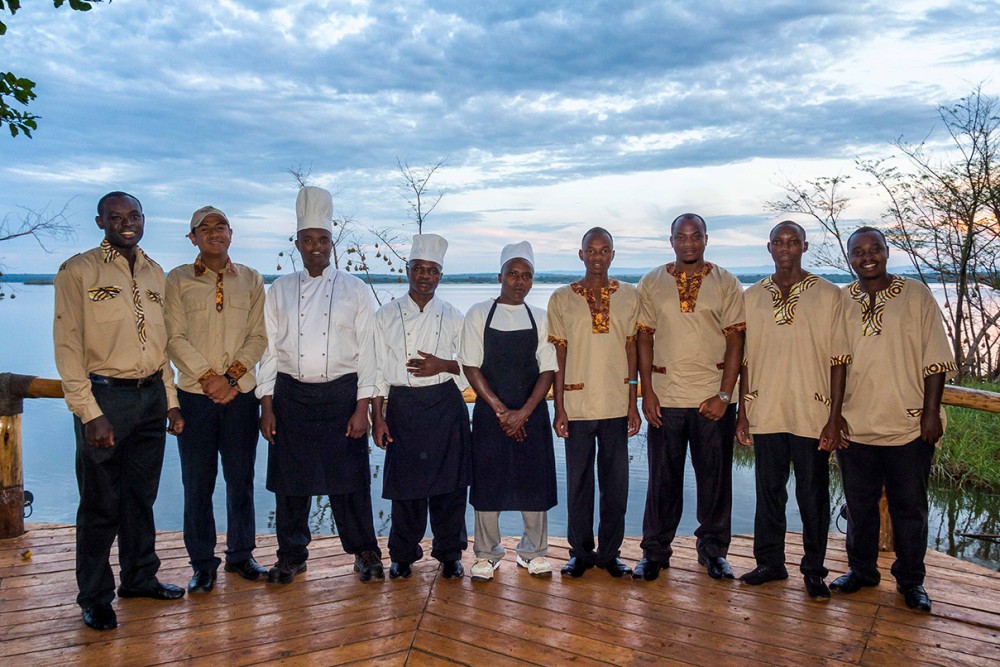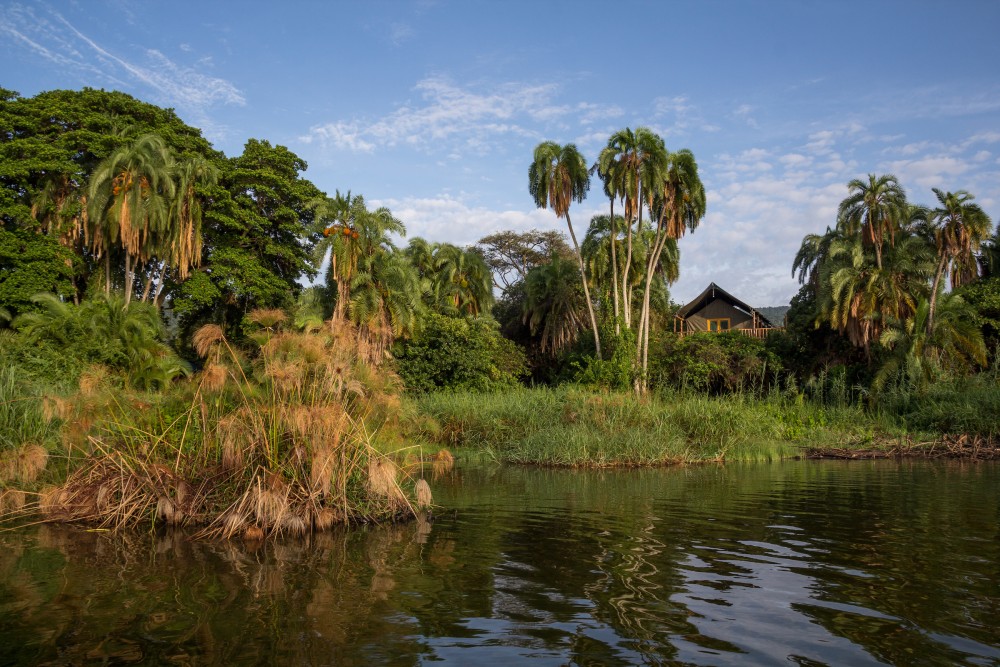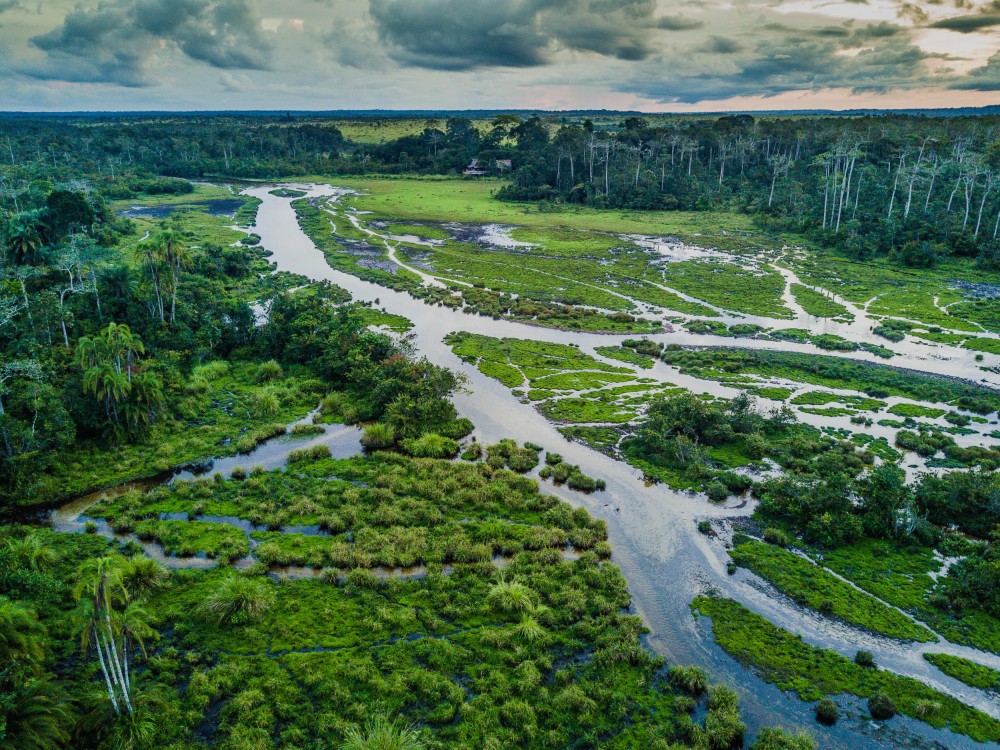Generating Sustainable Revenue Streams to Support Biodiversity Conservation
Through tourism, sustainable utilisation of natural resources, nature credits and associated enterprises compatible with wildlife and biodiversity conservation, revenue is created to flow back into the management of protected areas. This in turn supports a conservation-led economy, generating long-term income, alleviating poverty and reducing donor dependence over time.
Creating a Conservation-led Economy
Effectively managed parks directly contribute to local and national economies. African Parks is one of the largest employers in many of the regions it operates in, providing direct employment opportunities for thousands of people. African Parks also spends between US$1 – $US10 million annually in the respective countries of operation on local suppliers and contractors. This, together with employment, supports the local economy.
Through investments in tourism, sustainable resource harvesting and nature credits, revenue is generated to flow back into the parks and surrounding communities, supporting wildlife and biodiversity conservation.
Today African Parks employs over 4,200 people, of which 97% are nationals.
Over the past five years, US$130 million has been paid in African Parks salaries and tourism has generated US$27 million which has contributed directly to operation of the parks.
Akagera National Park in Rwanda has become a shining example of how it’s possible to create a self-sustaining park under sound management. In less than 10 years under African Parks management, Akagera is almost 100% self-financing through its local enterprise projects and thriving tourism. Today, 43% of its paying visitors are Rwandan citizens, with further access provided free of charge to certain community and school groups. In addition to supplementing the funding of the park’s costs, in 2022 alone, socio-economic initiatives in Akagera National Park earned nearly US$1 million which flowed back into the surrounding communities.
 © John Dickens
© John DickensSustainable Tourism to Support Communities and Wildlife Conservation
To create tangible economic benefits that supports local communities and generates funds to help sustain the parks’ conservation efforts, tourism needs to be ecologically sustainable, socio-politically acceptable and financially viable.
Tourist lodges and camps create opportunities for employment and training, both directly and indirectly in the goods and services procured to keep the operations running. As the demand grows for supplying goods and services to tourism facilities in the park, the more the local economy is fed, and communities gain a stake in the long-term success of the park.
One of the key focus areas is creating options for local communities and citizens of the host country to experience and enjoy their national heritage. To do this we create accommodation options to provide for a range of needs. Community campsites are developed to offer an affordable park experience as well as income streams for local people and concessions are leased to tourism operators for high-end tourism options that generates concession fees which support park operations.
All developments are done according to a Commercial Development Plan and agreed upon by all stakeholders.
In this way, the funds raised by the park, through gate entrance fees, concession agreements and tourism operations as well as other tourism initiatives, are captured directly by the park and channelled into the costs of managing the park. This creates the base for financial sustainability of the protected area, reducing the dependency on donor funds over time.
 © John Dickens
© John DickensOver the past five years a total of US$27 million in tourism revenue has flowed back into the parks, and 65% of all visitors have been local, which includes free access for local communities and school groups.
If you are interested in investment opportunities in any of the parks under African Parks management, please contact Dave Wilson, Head of Commercial Development on [email protected]
Sustainable Resource Utilisation
Harvesting of natural resources in a sustainable manner helps generate funds not only for the parks but also for local communities. Traditional and legislated access rights to natural resources are respected by African Parks and, in conjunction with effective conservation law enforcement, are managed for long-term sustainability to benefit local people and reduce harmful over-exploitation.
For example, in Bangweulu Wetlands, Zambia, black lechwe are harvested annually by permit holders to provide a legal source of protein for the communities, as well as helping to manage healthy lechwe population numbers. This not only ensures an alternative protein supply for communities during seasons when fishing is banned, but also creates an alternative source of income for the protected area. Hides from the lechwe are converted to leather and into leather goods in tanneries run by local community members, who are trained by African Parks. The hides are then curated into a variety of leather products by the community and sold at local markets to generate income for the community.
In addition, a variety of non-timber forest products are harvested across the parks, which are either consumed or packaged for sale by communities, such as harvesting of Shea nuts and baobab fruit in Pendjari, Benin, and desert dates for balanites oil in Zakouma, Chad. In Akagera National Park, Rwanda, nearly 400 beekeepers produced 12.5 tonnes of honey in 2022 generating US$60,000, shared between themselves and the park, while the COPABARWI fishing cooperative, which has an agreement to fish in the park’s lakes, harvested 115 tonnes of fish, earning US$93,000 for itself and $145,000 the park.
 © Scott Ramsay
© Scott RamsayNature-Based Solutions: Carbon Credits and Nature Units
To generate long-term sustainable funding to finance conservation and restoration efforts, African Parks is also focused on nature-based solutions.
One of the initiatives currently in development is a carbon credit programme which focuses on voluntary markets and a concept called REDD+ avoided deforestation. This initiative helps African Parks works to prevent deforestation and its associated carbon emissions, and in return, earn carbon credits. These credits are sold to companies who want to offset their own carbon footprint.
In addition to the carbon credit programme, a funding mechanism called Verifiable Nature Units is being explored. This approach takes a more holistic view of valuing nature. It is based on measuring and proving that efforts have maintained or improved the condition of nature from one year to the next. This is done by assessing the intactness of habitats and monitoring key indicator species in the parks under management.
For more information, contact us at [email protected]
Your Support Goes a Long Way
At African Parks we are working everyday to protect Africa's last wild landscapes. By donating to us, you are making a difference and are giving hope to people and wildlife across the continent.
Donate